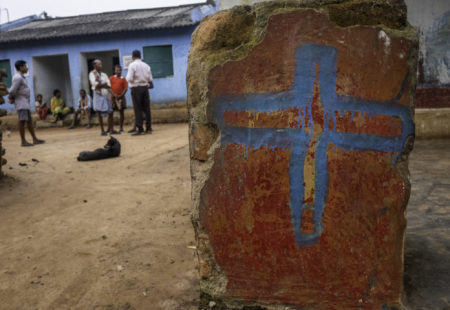India Supreme Court grants bail to Christian falsely imprisoned for over 10 years

The Supreme Court in India has granted bail to one of seven Christian men that advocates say was wrongly convicted of murdering a Hindu leader over a decade ago in Kandhamal.
Gornath Chalenseth was bailed out on May 9 from Phulbani jail in Odisha state on May 9, according to the Asian-Catholic news agency ucanews.com.
Chalenseth, along with Bhaskar Sunamajhi, Bijay Kumar Sanseth, Budhadeb Nayak, Durjo Sunamajhi, Munda Badamajhi and Sanathan Badamajhi, was jailed after being accused of murdering Hindu monk Swami Laxmanananda Saraswati and four of his associates on August 23, 2008.
In the aftermath of the Hindu leader’s death, anti-Christian violence in Kandhamal reportedly resulted in the death of dozens of Christians and the destruction of villages. According to ADF India, which represents the convicted men, over 8,400 houses were burned and 360 churches destroyed as a result of the violence in 2008.
According to advocates, the Christian men were convicted on the basis of a fabricated claim without credible evidence. The accused were convicted and sentenced to life in prison in 2013.
The legal appeals for the convicted men have been pending for the past five years while thousands across the globe have called for the men’s release.
Although the Indian legal system allows for bail to be granted while convicts await their appeal, bail was denied twice in state court.
In its decision last week, the nation’s Supreme Court ruled that Chalenseth should be released on bail while the state court settles his appeal because he has already served 10 years of his sentence.
“It is a huge victory for these hapless men who don’t have the resources or knowledge to fight for their freedom in India’s complicated judicial system,” Dibakar Parichha, a lawyer and Catholic priest assisting the men, told ucanews.com.
Parichha is hopeful that the other six men will soon be granted bail as well.
Journalist Anto Akkara, who has advocated for the release of the convicted men, told Matters India that the bail order is a “landmark and huge victory in the fight for justice for Kandhamal’s seven innocents.”
“This bail order of the Supreme Court, led by the ADF legal team, I hope, will be the first step towards acquittal of the innocent Christians languishing in jail for a decade for a crime they never committed,” Akkara said.
The Supreme Court’s decision to grant bail comes as Christians in Madhya Pradesh celebrated another court victory last week.
On May 6, a state court acquitted Pentecostal Pastor Balu and his family, a ministry leader in a small Indian village in Madhya Pradesh who was accused of violating the state’s anti-conversion laws in 2016.
According to ADF India, Balu was taken in when a group of nationalists stormed his church during service and began beating and harassing worshipers. Police then came and arrested Balu, his wife and son.
“Nobody should be persecuted because of their faith. The acquittal of Pastor Balu and his family is a vital step towards the protection of religious freedom and the right to freely live out one’s faith,” ADF India Director Tehmina Arora said in a statement. “Now he can continue to tend to his small community of Christians without interference from the state.”
ADF India points out that Balu’s case is not the only one in India involving Christians who have been falsely accused under state-level anti-conversion laws that bar anyone from using force or allurement to convert people to another religion.
However, the anti-conversion laws have often been used by radical Hindus to persecute Christian ministries and leaders.
“These laws make religious minorities subject to arbitrary imprisonments and criminal charges, mob violence, and violations of their fundamental rights,” Arora added.
Last year in the state of Uttar Pradesh, two Pentecostal men were arrested after being accused of forced conversion.
India ranks as the 10th-worst nation in the world when it comes to Christian persecution, according to Open Doors USA’s 2019 World Watch List as Hindu radical attacks against religious minorities have increased since the BJP came to power in 2014.
“In 2019, violence against Christians has risen significantly,” ADF India stresses in a news release. “In the first quarter of the year, the United Christian Forum and ADF India documented more than 80 violent mob attacks against Christians in 13 different states across India. The attacks often take a similar shape and rarely receive any police attention.”
Follow Samuel Smith on Twitter: @IamSamSmith
or Facebook: SamuelSmithCP





















